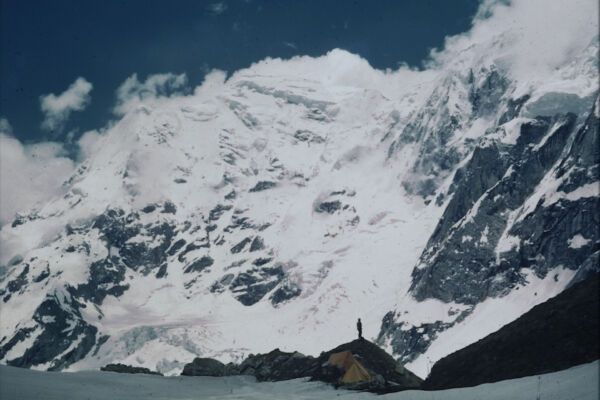PRESENCE(S): Seminars & Encounters & Screenings - Carlos Reygadas & Natalia López Gallardo
- CINEMA RITCS
- film
- seminar


96 minuten | VO st EN (Zweeds gesproken, Engels ondertiteld) Cinéclub RITCS
Cinema RITCS and Different Class have teamed up! Each month, there will be one free screening for members. Capacity is limited and reservation is necessary. Different Class members can make their reservation here.
Nederlands:
De studenten van Cinéclub RITCS kozen in oktober voor films rond het thema “Death & Beauty.”
Ter navolging van het bloedvergieten in SUSPIRIA (1977) en de rauwe schoonheid van NOBODY KNOWS (2004) strijken we tenslotte neer op een Zweeds eiland voor een filosofisch intermezzo met de Dood zelve, in Ingmar Bergman’s klassieke film DET SJUNDE INSEGLET (1957), oftewel Het zevende zegel. Een ridder (Max von Sydow) keert gedesillusioneerd terug van zijn kruistocht, maar het is in zijn thuisland niet veel beter. De Zwarte Plaag heerst, en ook voor de ridder zelf staat de dood te wachten. De ridder, die enorme schrik heeft om te sterven, daagt de personificatie van de dood uit voor een schaakspel. Terwijl de mannen spelen, vinden er allerhande gebeurtenissen plaats die verschillende perspectieven op de dood, de zin van het leven en religieuze moralen laten zien.
Ingmar Bergman (1918–2007) geldt als een legende onder de cinefielen, een regisseur die de kunst van cinema wist te verheffen van entertainment naar een vehikel tot het exploreren van filosofische, psychologische en religieuze vraagstukken. Zijn films zijn zonder uitzondering visueel voortreffelijk en verhalend onderhoudend. HET ZEVENDE ZEGEL kwam voort uit een toneelstuk dat Bergman had bedacht rondom allerhande existentiële kwesties die hem plaagden. Hoewel de film geproduceerd werd tijdens het angstige klimaat van de Koude Oorlog, plaatste Bergman het verhaal in een mythische, Middeleeuwse setting, waarmee hij garandeerde dat de film ook voor latere publieken nooit gedateerd aan zal voelen.
English:
This month, the students of the Cinéclub association programmed films surrounding the theme of “Death & Beauty.” To round out the bloodshed of SUSPIRIA (1977) and the beauty found in the bleakness of NOBODY KNOWS (2004), we descend upon a Swedish island for an intermezzo with death itself in Ingmar Bergman’s iconic THE SEVENTH SEAL (1957).
A disillusioned knight (27-year old Max von Sydow in the role that launched his career) returns home from the Crusades, finding that the land of his birth is in dire straits due to the Black Plague. Death waits for no-one, and it soon comes knocking for him, too. However, the Knight’s fear of mortality inspires him to make a bold move: he challenges Death to a chess match. As the men sit down to play, multiple interconnected events take place, each illustrating varying perspectives on the myriad unanswered questions surrounding death, the meaning of life, and religiosity.
Ingmar Bergman (1918–2007) is a legend among cinephiles, having become known as the director who elevated cinema to an art form capable of exploring profound philosophical, psychological and religious queries. Without exception, his films are visually striking and narratively captivating. THE SEVENTH SEAL arose from a short morality play Bergman had written to explore existential topics that he, himself, was dealing with. Produced during the anxious era of the Cold War but evoking the mythical period of the medieval Crusades, the film is poised to command the attention of audiences present and future without ever feeling dated.
Français:
Au XIVe siècle, la grande peste ravage la Suède. De retour des croisades, le chevalier Antonius Blok rencontre la Mort sur son chemin. Il lui propose une partie d’échecs afin de retarder l’échéance fatidique et trouver des réponses à ses questionnements sur la foi. Entre-temps, le chevalier et son écuyer vont faire la rencontre de plusieurs personnages intrigants, entre une famille de troubadours et une horde de dévots fanatiques…


